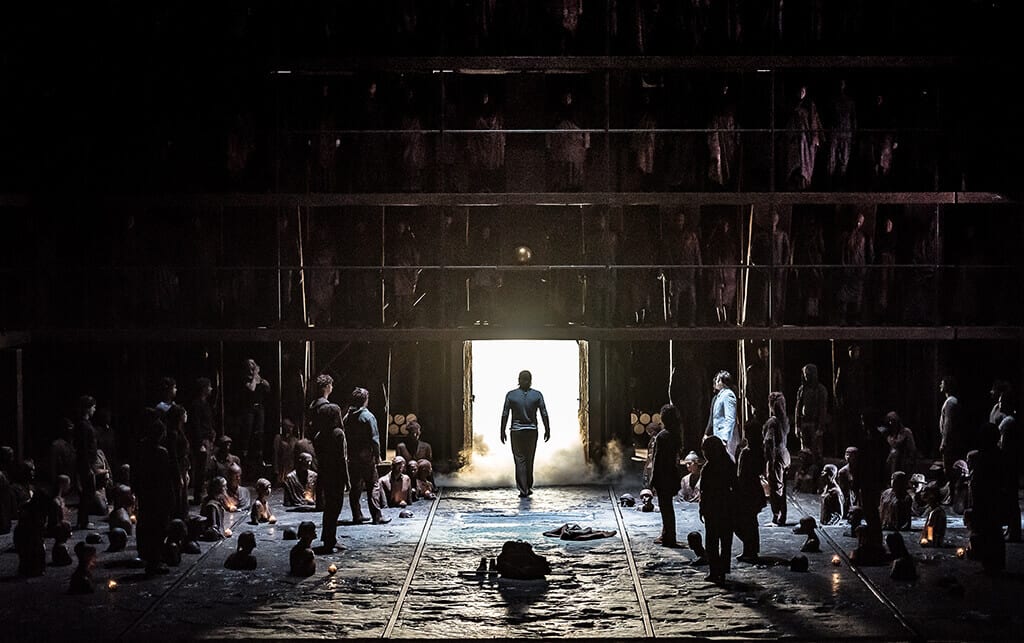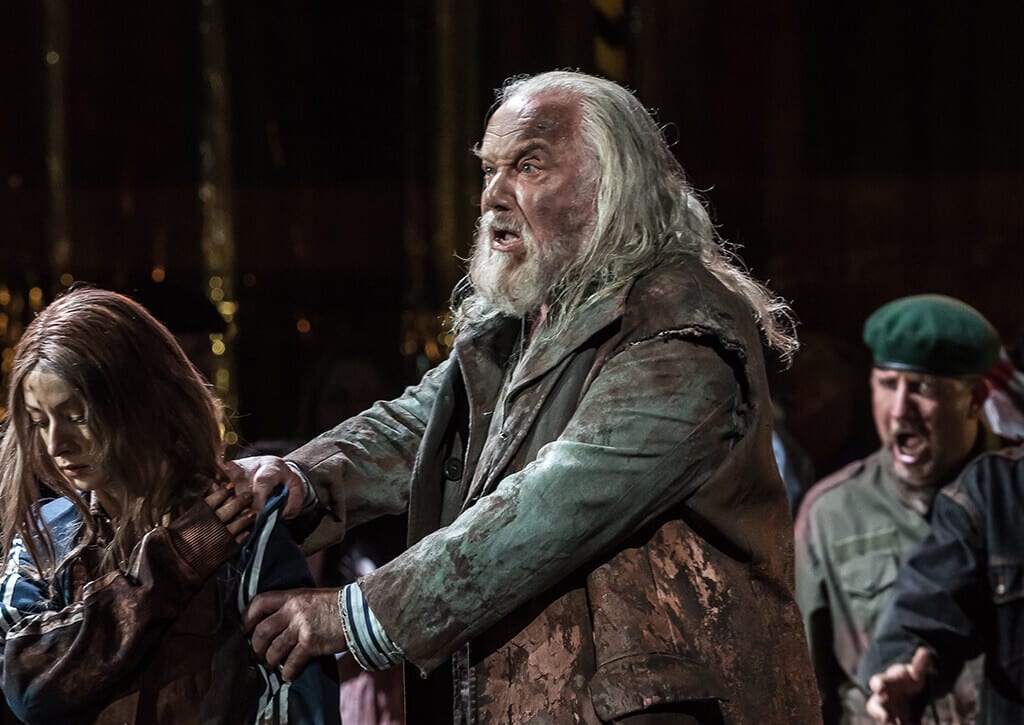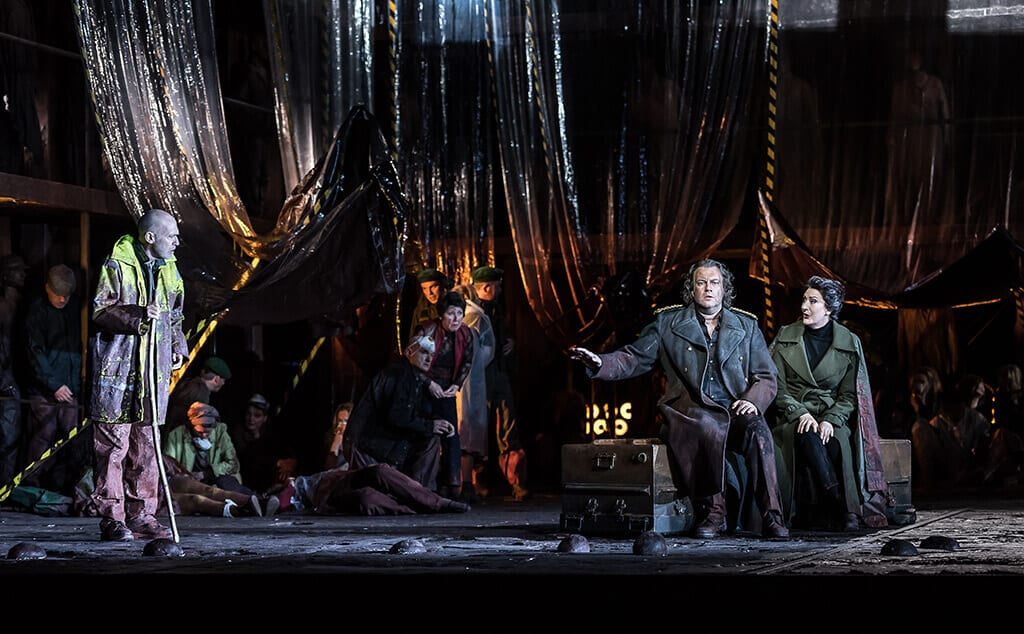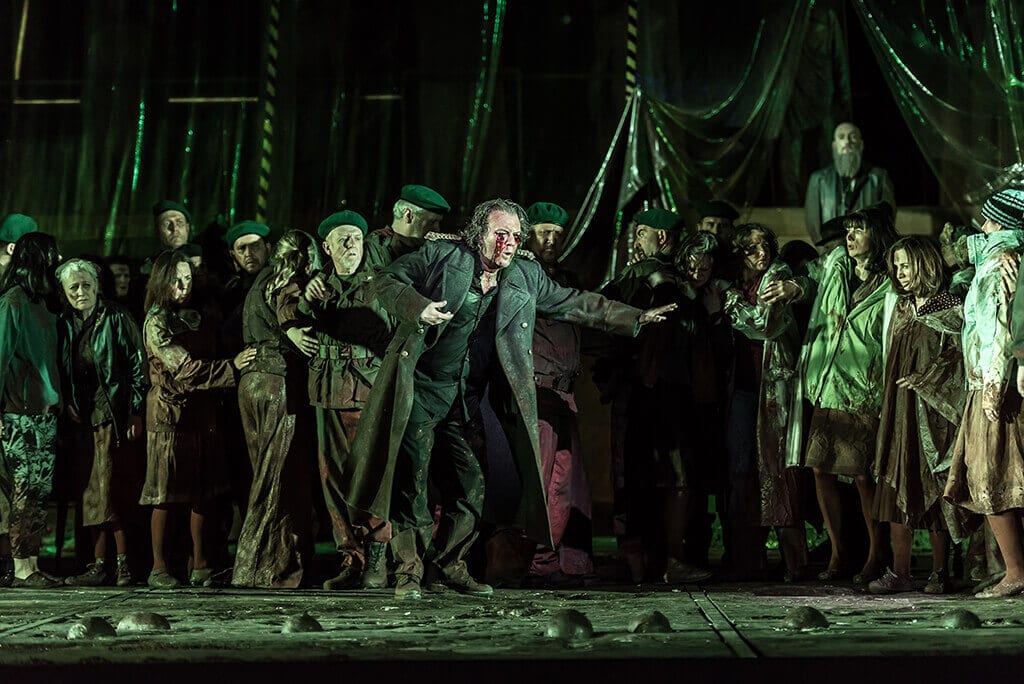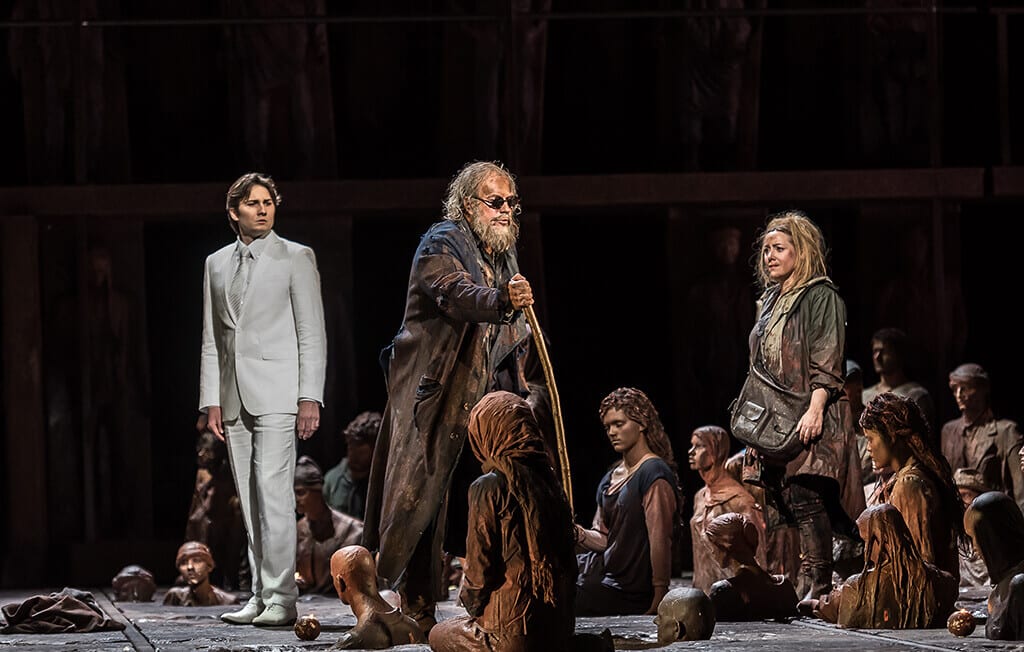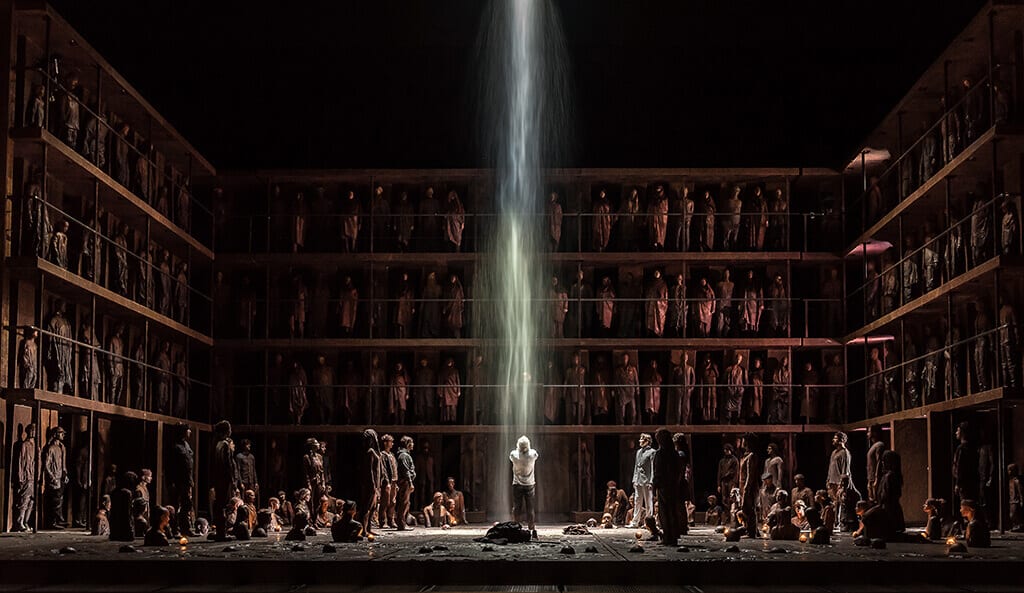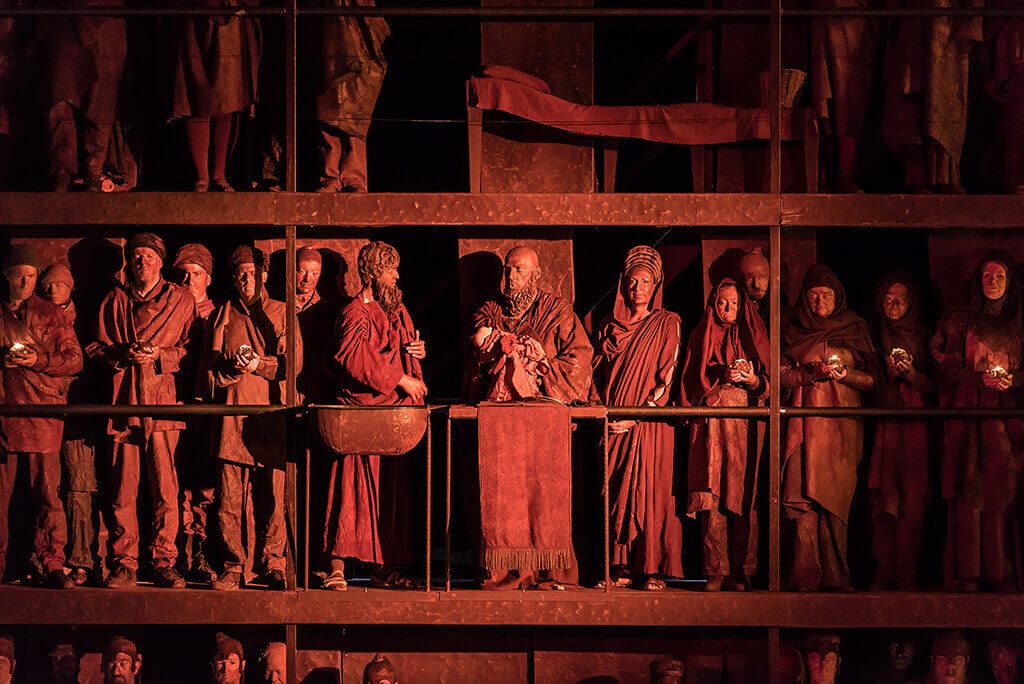George Enescu is a Romanian national treasure who spent much of his creative life in Paris. His status in Europe as a virtuoso violinist and as a composer really should have brought Oedipe to Covent Garden before now – its first performance was in 1936 in Paris though Enescu began working on the score some twenty years earlier. This ambitious production, created by Olle and Carrasco from the Catalan theatrical group, La Fura dels Baus shows that, for all its flaws, it is a work that thoroughly deserves to be in the international repertoire.
The opera covers the whole life of Oedipus, the tragic king of Thebes. Act 1 tells of his birth and act 2 of his return from Corinth to Thebes and the murder of the old man at the crossroads. Act 3 tells how Oedipus discovers the terrible truth about the fatal destiny he has tried to avoid and act 4 tells of his journey to Athens and to final peace. It is told by Enescu with music of power and beauty which bring singing of high quality from the singers and from the wonderful royal opera chorus.
The settings for the fours acts are very varied – and some work better than others. The opera opens with a stunning visual coup de theatre. The front of the stage is filled with four platform tiers populated with figures that, at first, look like the frieze from an ancient cathedral. As the first transparent curtain rises, we realise that they are the chorus members, motionless and silent. All the figures gradually come to life as the Thebans celebrate the birth of a son to their king and queen. Acts 2 and 3 are set in a post-cataclysmic landscape of urban decay. Merope, Oedipus’ foster mother, puts on a white coat and plays the psycho-analyst as he tells her of his nightmares about killing his father. Laios is killed at a motorway roadworks amidst flashing hazard lights and the Sphinx inexplicably emerges from a crashed airplane. Act 4 in a grove outside Athens returns to a more timeless mythic setting and Oedipus departs to his final rest through cleansing rain and into white light as we listen to music of resignation and tranquillity.
The musical language is at first difficult to grasp and some of the singing uses vocal styles that are not at all conventional – the Sphinx, a striking performance by Marie-Nicole Lemieux – half sings and half speaks her riddle. Johan Reuter is a splendid Oedipus, growing in stature as he comes to face his implacable fate. John Tomlinson is a force of nature as the blind seer, Tiresias, and Sophie Bevan plays the small role of Antigone with great delicacy.
There are passages where Enescu’s musical inspiration seem to have deserted him, particularly on Oedipus’ road back to Thebes. And some of the directors’ ideas seem perverse, that inexplicable airplane for example. But the power of the music and the impact of the visual images far outweigh the moments of doubt. This is another real achievement for Kasper Holten’s all-too-brief time as opera director at the Royal Opera.

